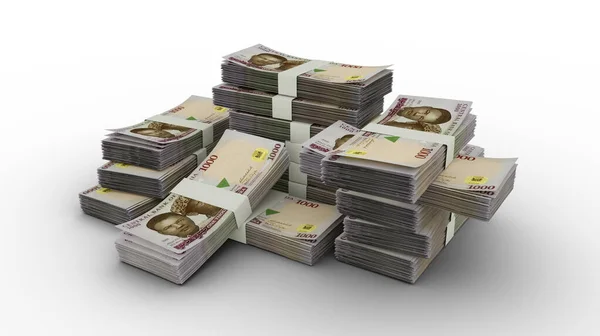Naira Continuous Weakness Has Finally Brought It to N760/$ at black market
As the inauguration approaches, demand for the dollar is on the rise, along with big-ticket purchases. To help readers fully comprehend the situation and make informed financial decisions, it would be beneficial to clarify the sources of the surge in demand for foreign exchange and explain why the naira can no longer resist the dollar. Additionally, providing more context on past governors and lawmakers who have fled the country with illegally obtained funds would emphasize the need for anti-corruption measures. It is crucial to explore the long-term effects of the current surge in foreign exchange demand and its potential implications for the Nigerian economy. As for recent developments, the naira has dropped to N760/$, losing its long-standing N750/$ resistance, which has gained attention due to the upcoming regime change.
The market may have started pricing in uncertainty risk that comes with a change of national economic managers. Some dealers said yesterday that there has been a surge in demand for foreign exchange (FX) since the beginning of the week, though they could not justify the sudden spike.
But further market intelligence suggests a return of high-ticket transactions to the black market. Sources linked the surge to next week’s inaugurations across the country. However, it could not be confirmed that the large volume of transactions comes from the political circle. Previously, past governors and lawmakers had allegedly fled the country with ill-gotten wealth immediately after the end of their tenures for fear of being arrested by anti-corruption agencies.
President Muhammadu Buhari will leave office on Monday alongside 44 ministers and a retinue of aides who have held on to power in the past eight years.
Across the country, 18 governors will also hand over the batons of the political leadership of their states beginning next week as their successors take the oaths of office. Members of the National Assembly and 36 parliaments will also be inaugurated days after the executives take over the reins of office. The information was that some of the outgoing public officials (some of whom are covered by the immunity clause) are on the watch of the Economic and Financial Crimes Commission (EFCC).
A source privy to details of some of the investigations said the EFCC is reviewing dossiers of petitions, some of which may be politically motivated, and some governors may have been under close watch.
“Whether there are petitions is not a question, but how many are viable? If you understand the number of public officials that are leaving office soon, you will be surprised that there is so much jittery in the political space,” the source said. Dating back to the pre-election era, the pages of newspapers are rife with accusations and counter-accusations of fraud and misappropriation of public resources. Different officials have also been involved in phoney projects conduits of siphoning state resources.
This is not the first time naira would lose its hold before the inauguration. The 2015 foreign exchange rate crisis pre-dated the general elections but spiked weeks before the inauguration of the Buhari administration, raising concern about the correlation between dollar scarcity and the winding down of subsisting administration.
On Monday morning, the naira traded around N735/$ but started loosening its hold at the close of the day. As of press time, it had lost close to four per cent week-to-date (WTD). The local currency faces more downside risk except for the growing demand ease.
It was reported that the naira had consolidated at a narrow range – between 730-N750/$ – at the parallel market for over six months. It was about the longest stretch the local currency had traded without a significant swing.
Towards last year, the naira traded at a wide swing, with each week setting a new price range and the rate changing thrice during some trading sessions. The dollar spiked to the height of the exchange rate crisis, and the dollar spiked to N880/$. They reported that whereas politicians were mopping the market to prosecute their political ambitions, speculators had turned the currency into an article of trade.
But the local currency gained stability as the year-end approached, marking the end of the high volatility witnessed in the past few years.
Since then, the currency has cooled, trading at N730-750 in what could be interpreted as an inflexion point, a curve at which a change of direction is necessary. Reporting financial news and analysis.

.png)

Comments